

|
Defraggler is another program to defragment your disks. Large files can get broken into many parts, or fragments, and scattered around your disk drive. By defragmenting, putting them all back together, its much faster to read the large file when you need it. Windows comes with a built-in defraggmenting program, but Defraggler has a few advantages: It graphically shows you whats on your disk, which the Vista program no longer does. It has much better reporting than the Vista program, you can actually see a list of fragmented files and a count of the fragments. It allows you to quickly defragment individual large programs or files you might use frequently. It allows you to defragment free space, which helps prevent future fragmentation. Defraggler is one of three FREE tools from Piriform, a UK company gives away their software, relying on donations for support. You can download a copy from www.defraggler.com/. It's a little over half a MB, so should take less than two minutes to download on a dial-up line. As you start installing it, you'll see:
As you continue clicking "Next" it will ask you to agree to the terms of their license, give you a choice of where to install it (most will just put it in the default location under "Program Files"), and maybe give you some install options. Once installed, when you start it, you see: |
Sponsored Advertisements:
|
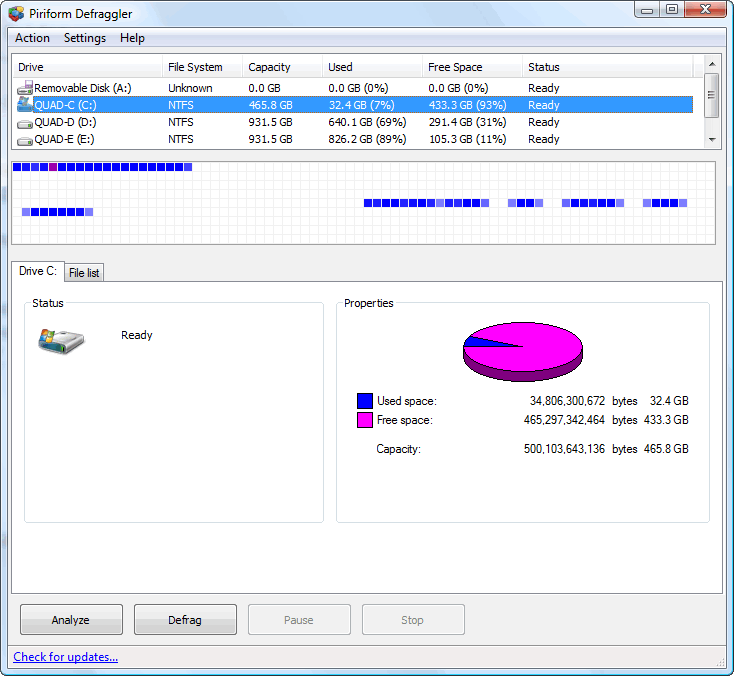
Highlight the disk you want to analyze (highlighted in blue above) and press "Analyze". It doesn't take long to generate a report like this.
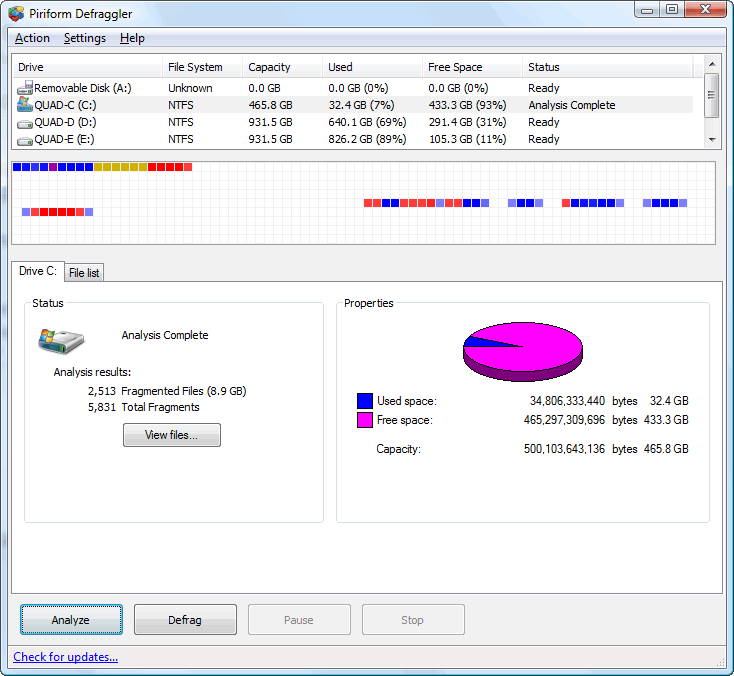
This is a brand new machine, so I was surprised at the large number of fragments. As you can see about 1/4 the disk is fragmented (8.9 GB out of 32.4 GBs). A legend showing what the colors mean can be found under Help / Drive Map Legend:
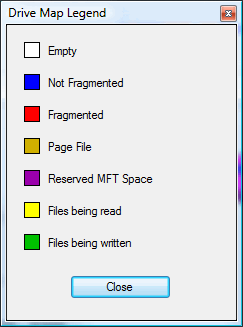
If you click on the "File List" tab, you see a list of the files that are fragmented. Initially the list is sorted by the number of fragments, but you can sort it by file size, file name, etc. by clicking on the column headers:
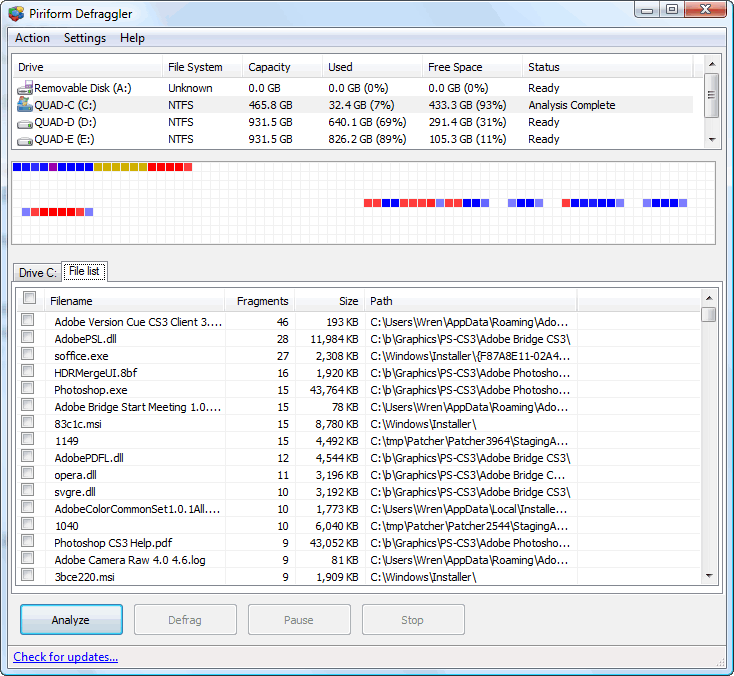
If you highlight (single left click) an individual file (or multiple files using Ctrl or Shift-Click) you get a "Defrag Highlighted" option:
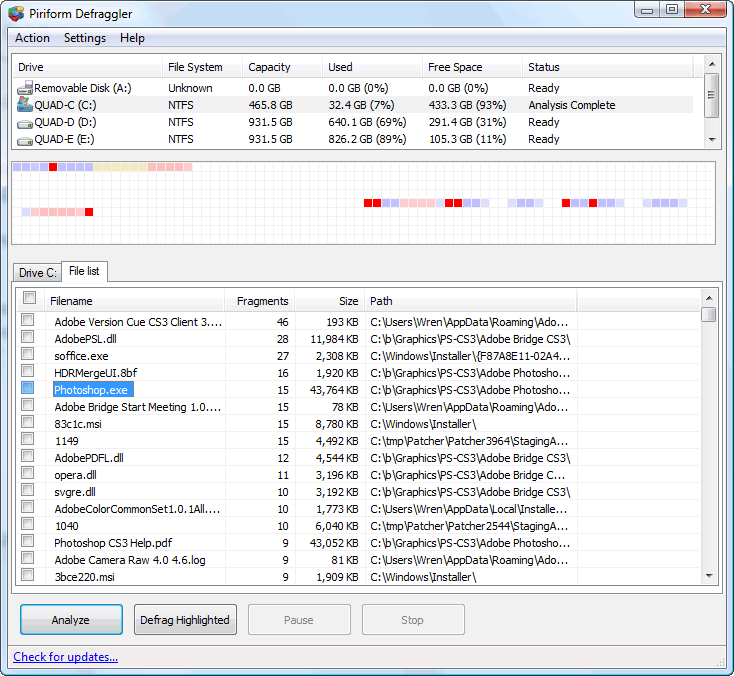
Since I use the Photoshop.exe program almost every day, it is certainly something I would want to defragment. You can also check boxes next to various files, in which case you get a "Defrag Checked" option:
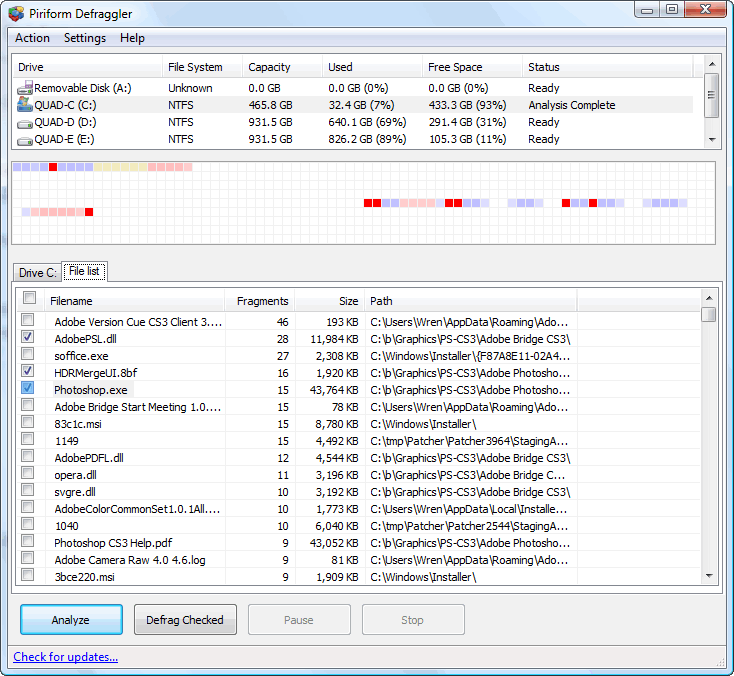
I pressed the "Defrag Checked" button and saw:
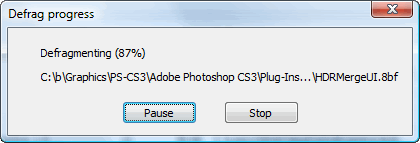
It only took a few seconds to defragment these three files. As you see below, they now only have one fragment, which means the file is contiguous on the disk and the entire file can be read at once.
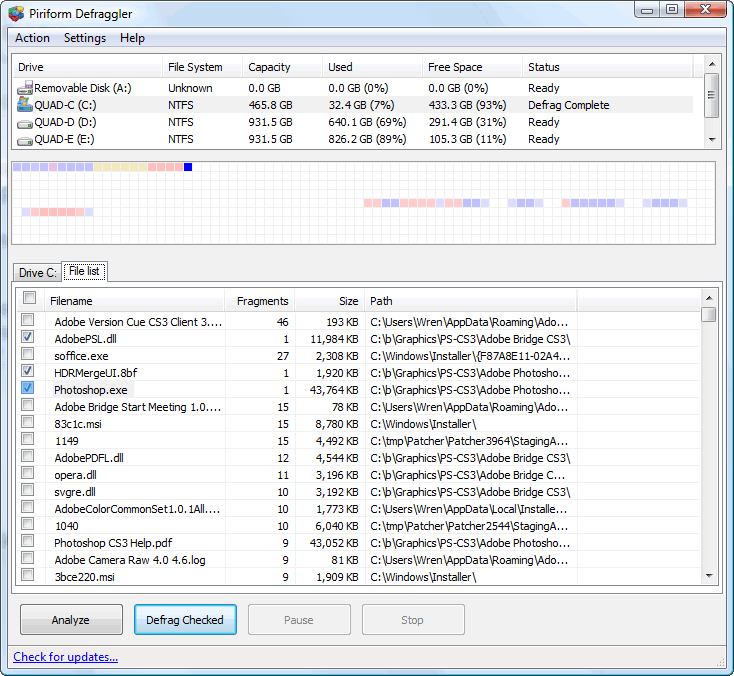
Next I went back to the overall view of the C drive and pressed "Defrag":
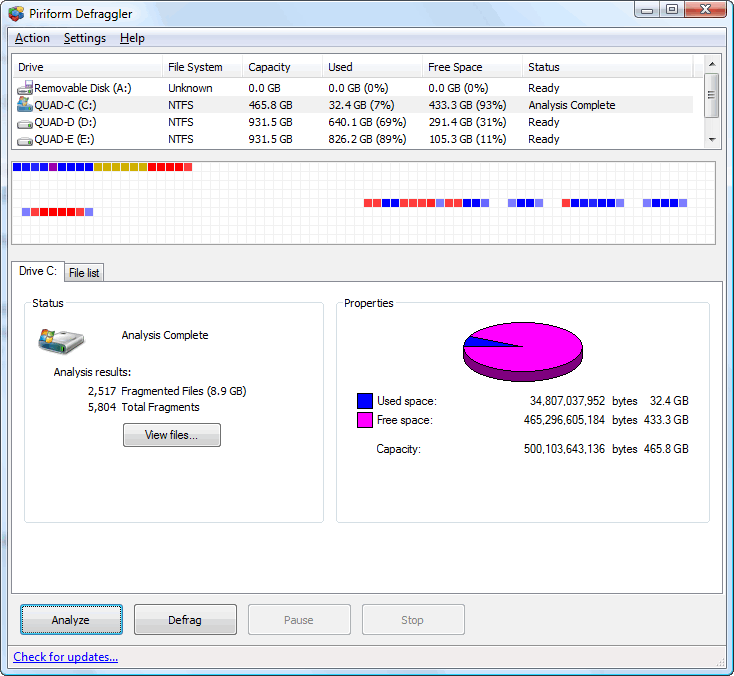
However, before doing this you might want to change the priority, under Settings:
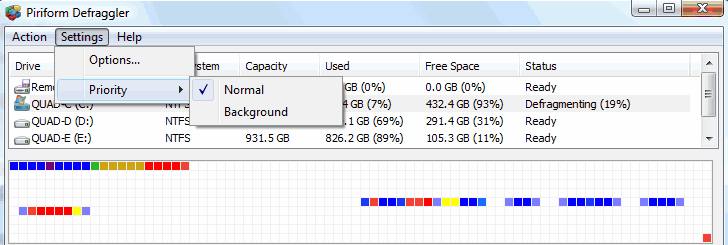
Use the "Background" setting if you want use your machine to do something else while the defrag is happening. Use "Normal" if you plan to walk away, the defrag will go faster. It may take quite a while. After less than a minute, it was only 1% (about 40 out of 2518 files) complete:
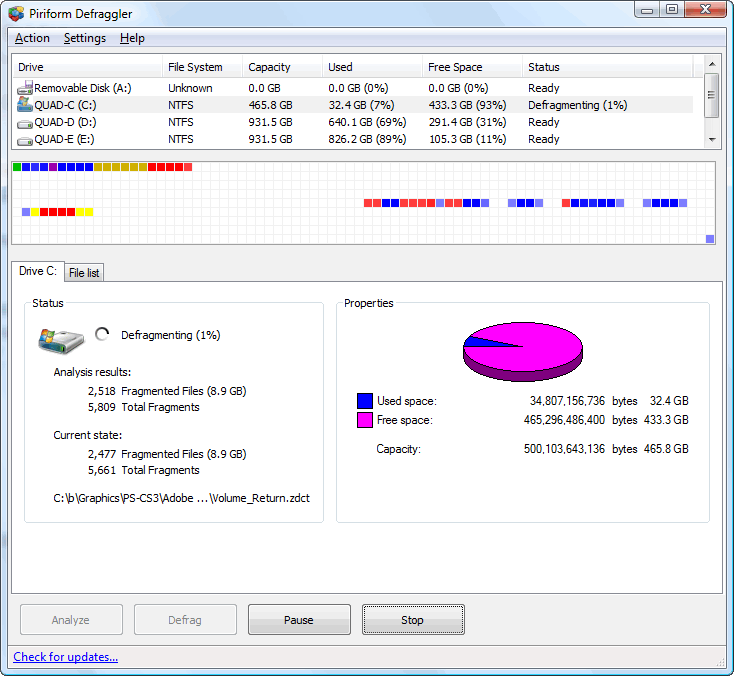
After quite a few minutes, it was only up to 16%. I figured I finish later, so I pressed "Stop". I
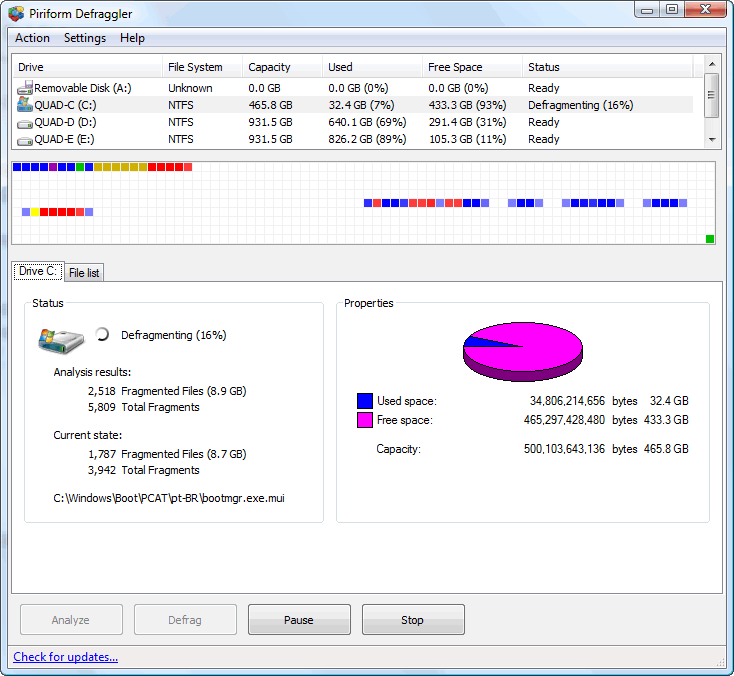
Of course another option would have been to "Pause" and change the "Priority" to "Background" so Defraggler would take less machine resources and let me continue working without slowing me down too much. While I've been writing this, I restarted Defraggler using the "Background" setting ... it's much slower, but it's working in the background and hasn't slowed me down doing other things.
A feature I really like is the one that lets you defragment the free space under Action / Advanced. I recommend the "allow fragmentation" option:
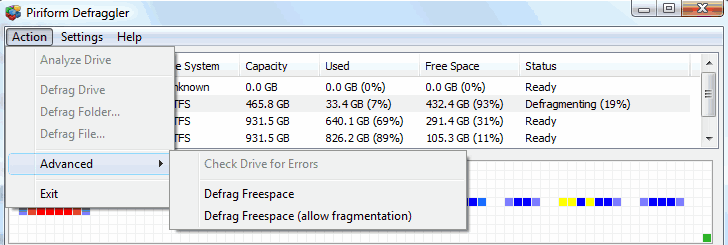
This gathers contiguous free space into single chunks, and help prevent future fragmentation. I used another program where the only option was to put all the freespace into a single big chunk ... this actually slowed things down ... as I said, use the "allow fragmentation" option and I think you'll be happy. (I just tried it ... it took a little longer than I expected, but seemed to work fine.)
Suggested next choices: